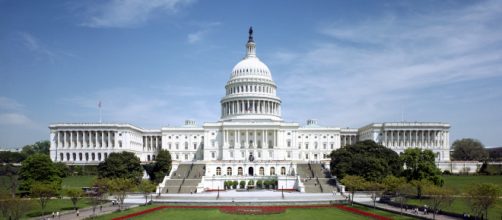On November 16, the House passed a controversial tax bill meant to boost the economy by giving $1.5 trillion in Tax Cuts to people and businesses. The bill is 440 pages long and was voted on just two weeks after the day it was introduced. The Senate has created a separate Tax Bill, that adds a repeal on the Affordable Care Act provision that those without health insurance pay a penalty, among other things. The Senate Finance Committee has voted to approve it, which means that it can be placed in front of the Senate after Thanksgiving. The Chicago Tribune claims that if the bill passed, it would cost us $1.4 trillion dollars.
Positive effect on big and small businesses
The bill is advertised as an aid for businesses, and this is technically accurate. This bill would permanently cut the top possible tax rate for big businesses by 15 percent, give companies tax breaks to lower their bills, a lower rate on any money they bring back from low tax areas, and stop taxing American businesses on money made in other countries. They've also added that business owners making $150,000 or less only pay nine percent on their first 75,000. It's worth mentioning that this is just another form of trickle-down economics, which is a highly controversial topic with a history of boosting economies and lowering the general quality of life, as mentioned in MS.
Amadeo's article in The Balance. More could be said on the topic but that would distract from the larger problems this bill would cause.
Cuts for the wealthy and a net loss for the rest
The Tax Policy Center found that half the benefits of the bill will go to the top one percent by 2027. This includes getting rid of the alternative minimum tax, which is meant to guard against extreme cases of tax dodging, and general tax cuts for the rich. Meanwhile, the middle class will see a temporary drop, then in 2023, their taxes will suddenly rise when the Family Flexibility Credit expires. At the same time, the Republicans are using a low measure of inflation in 2022, which forces people paying 12 percent in taxes to pay 25 percent in taxes.
On top of this, the bill would get rid of a long list of deductions. That list includes the tax credit for plug-in vehicles, deductions for moving costs, deductions for theft, tax benefits for college, and deductions for medical expenses. It has kept deductions for mortgage interest, some property taxes, and charity donations, all of which are regularly used by the wealthy. The bill has caused a strong reaction among the American voters and is currently trending on twitter under the hashtags #killthebill and #TaxTrap.
Keep calling to #KillTheBill. Here are the best targets. JAM THEIR PHONES. SHARE. pic.twitter.com/h3EKuZ4w5A
— Lulu Ward (@MillieLou5) November 14, 2017

